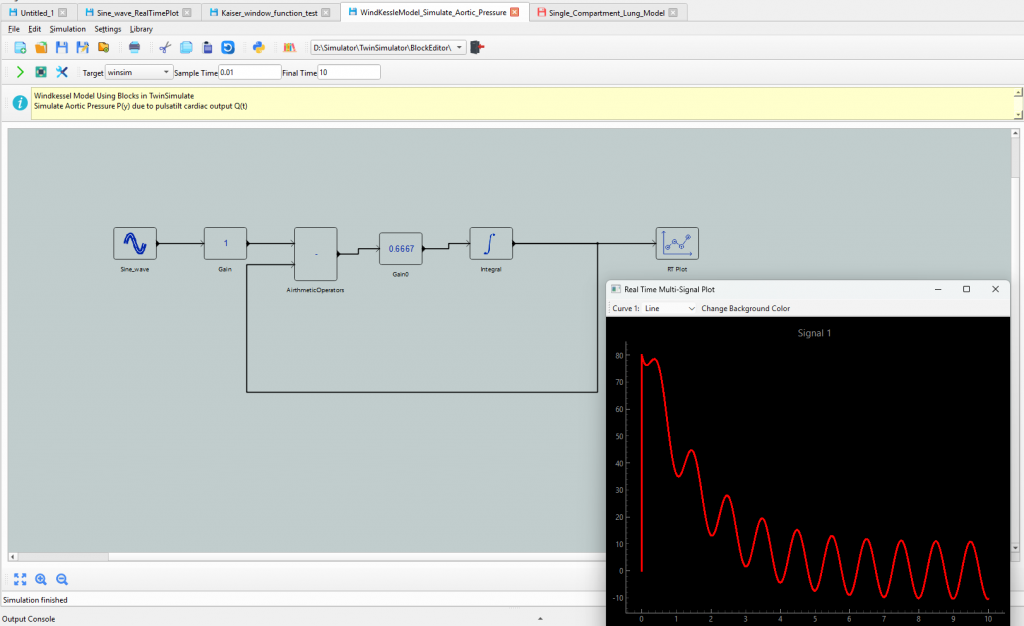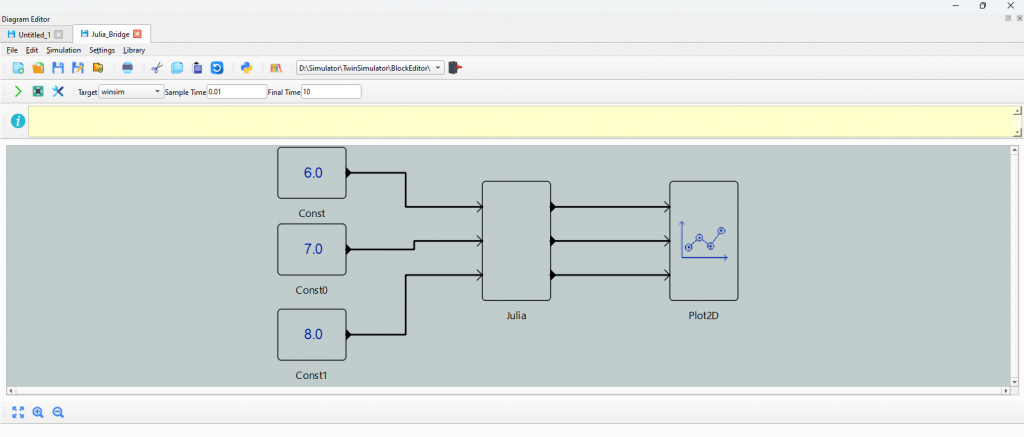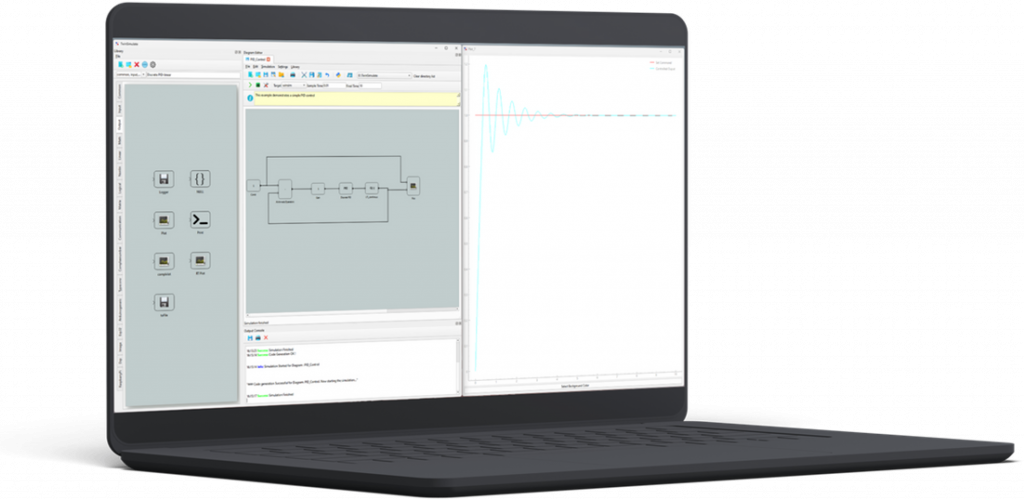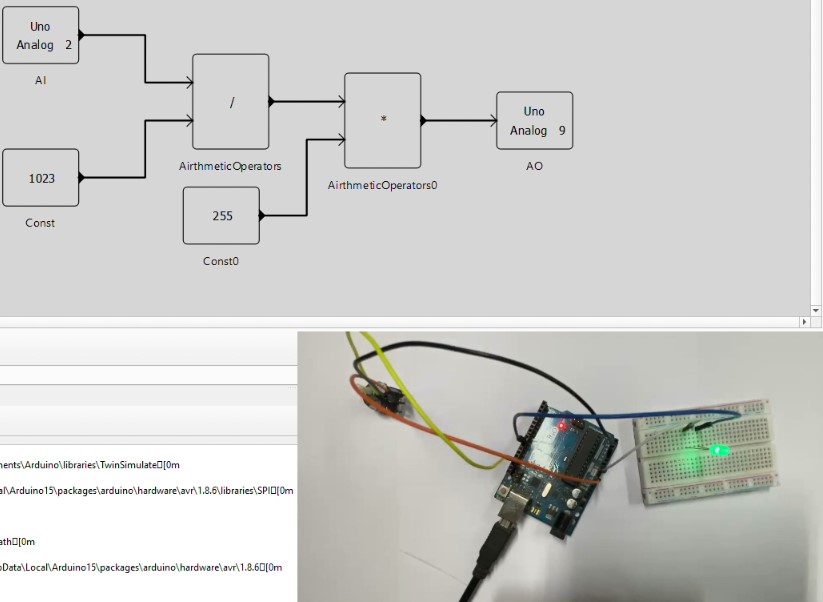- Model Based Automatic Code Generatin for RISC-V using Twin Simulate : CDAC’s Aries3 Pioneering Indigenous Innovation in Embedded Systems
RISC-V: Transforming the Global Technology Landscape RISC-V, an open-standard Instruction Set Architecture (ISA) initiated at UC Berkeley in 2010, is reshaping the global semiconductor industry. Unlike proprietary ISAs like ARM or x86, RISC-V is royalty-free and open-source, offered under permissive licenses such as Creative Commons and BSD. This accessibility democratizes processor design, enabling developers, startups,…
- Twin Simulate: Mathematical Modelling for Physiological Systems
Mathematical modeling of physiological systems involves the use of mathematical equations to represent biological processes. These models allow us to simulate, analyze, and predict the behavior of complex physiological systems under various conditions. By creating mathematical abstractions of biological processes, researchers can gain insights into how the body functions, explore the effects of diseases, and…
- Introducing TwinSimulate’s New Feature: Julia Code Integration in Digital Twin Diagrams
We’re thrilled to announce an exciting enhancement to the TwinSimulate : the ability to embed Julia code directly into your block diagrams for model-based simulation. This update bridges the intuitive, visual power of block-diagram-based modeling with the computational flexibility and precision of the Julia programming language. By combining these strengths, TwinSimulate is taking a significant…
- Recursive Least Squares (RLS) in Time-Series Prediction and using Twin Simulate
Importance of RLS Recursive Least Squares (RLS) is an adaptive filtering algorithm widely used for real-time signal processing, system identification, and time-series prediction. Unlike standard least squares, RLS dynamically updates model parameters as new data arrives, making it well-suited for non-stationary environments. RLS Use Cases RLS has numerous real-world applications, such as: Technical Details of…
- Model based code generation for Arduino platforms using Twin Simulate
Twin Simulate helps in accelerating your embedded system development by offering a model-based digital twin platform that automates code generation for Arduino hardware. Whether you’re a beginner or a seasoned engineer, Twin Simulate allows you to build systems for the Arduino platforms and much more using intuitive block diagrams—no programming skills required. The Power of…
 Mathematical modeling of physiological systems involves the use of mathematical equations to represent biological processes. These models allow us to simulate, analyze, and predict the behavior of complex physiological systems under various conditions. By creating mathematical abstractions of biological processes, researchers can gain insights into how the body functions, explore the effects of diseases, and…
Mathematical modeling of physiological systems involves the use of mathematical equations to represent biological processes. These models allow us to simulate, analyze, and predict the behavior of complex physiological systems under various conditions. By creating mathematical abstractions of biological processes, researchers can gain insights into how the body functions, explore the effects of diseases, and… We’re thrilled to announce an exciting enhancement to the TwinSimulate : the ability to embed Julia code directly into your block diagrams for model-based simulation. This update bridges the intuitive, visual power of block-diagram-based modeling with the computational flexibility and precision of the Julia programming language. By combining these strengths, TwinSimulate is taking a significant…
We’re thrilled to announce an exciting enhancement to the TwinSimulate : the ability to embed Julia code directly into your block diagrams for model-based simulation. This update bridges the intuitive, visual power of block-diagram-based modeling with the computational flexibility and precision of the Julia programming language. By combining these strengths, TwinSimulate is taking a significant… Importance of RLS Recursive Least Squares (RLS) is an adaptive filtering algorithm widely used for real-time signal processing, system identification, and time-series prediction. Unlike standard least squares, RLS dynamically updates model parameters as new data arrives, making it well-suited for non-stationary environments. RLS Use Cases RLS has numerous real-world applications, such as: Technical Details of…
Importance of RLS Recursive Least Squares (RLS) is an adaptive filtering algorithm widely used for real-time signal processing, system identification, and time-series prediction. Unlike standard least squares, RLS dynamically updates model parameters as new data arrives, making it well-suited for non-stationary environments. RLS Use Cases RLS has numerous real-world applications, such as: Technical Details of… Twin Simulate helps in accelerating your embedded system development by offering a model-based digital twin platform that automates code generation for Arduino hardware. Whether you’re a beginner or a seasoned engineer, Twin Simulate allows you to build systems for the Arduino platforms and much more using intuitive block diagrams—no programming skills required. The Power of…
Twin Simulate helps in accelerating your embedded system development by offering a model-based digital twin platform that automates code generation for Arduino hardware. Whether you’re a beginner or a seasoned engineer, Twin Simulate allows you to build systems for the Arduino platforms and much more using intuitive block diagrams—no programming skills required. The Power of…

